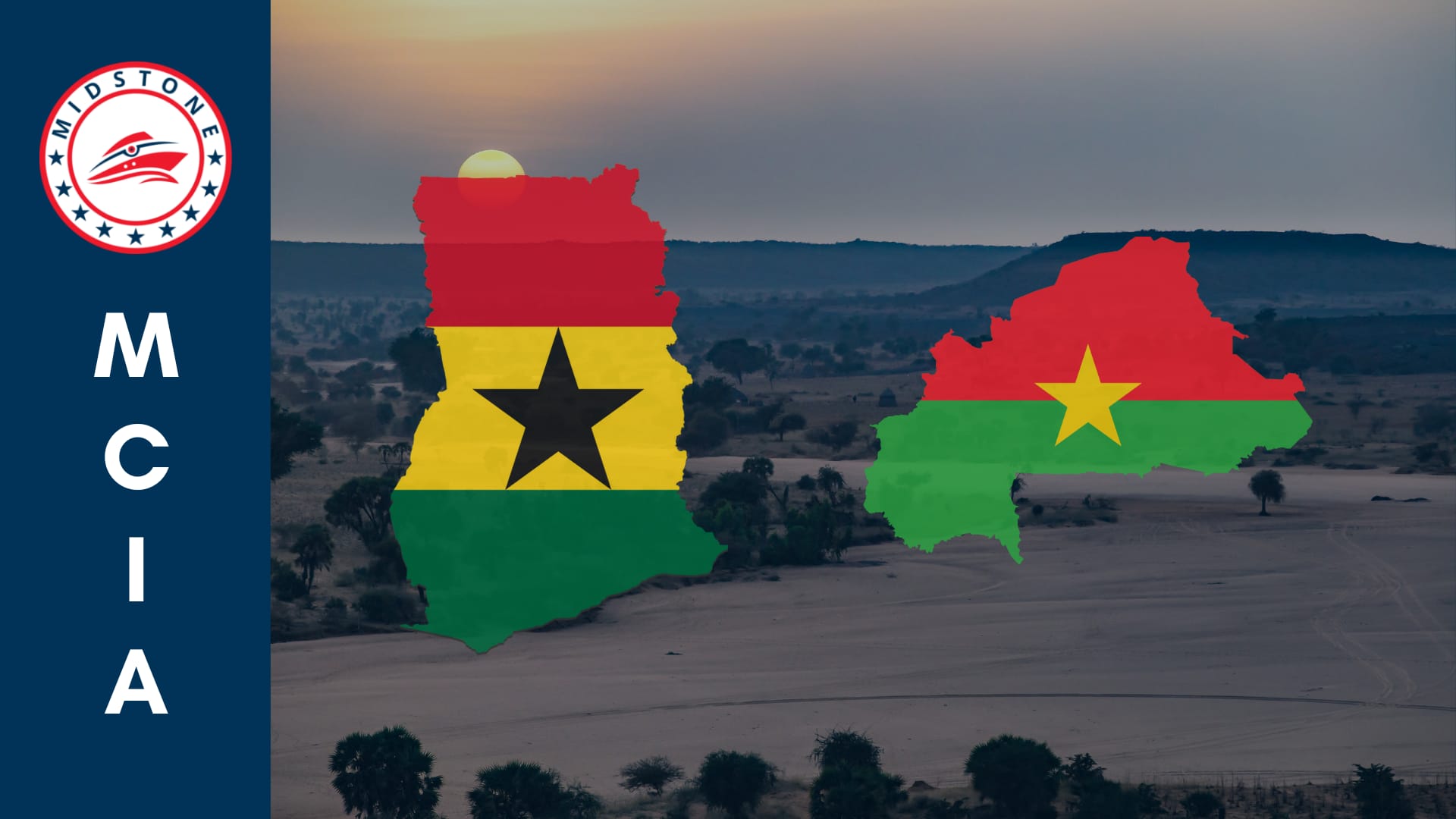
The security challenges in the Sahel are continuing the trajectory of moving southwards towards the Gulf of Guinea. And it appears that a new flashpoint may be arising as well.
Attention has been focused on the northern part of Ghana. This should not come as a surprise. In December 2022, Ghanaian President Nana Akufo-Addo warned that Burkina Faso had allowed the Russian private military company (PMC) Wagner to set up in the country. That, in effect, had allowed hundreds of refugees to cross into northern Ghana.
At the time, the government of Burkina Faso called the Ghanaian Ambassador into the Foreign Ministry to complain about the remarks made by President Akufo-Addo. Afterwards, the story seemed to disappear from the perpetual news cycle and wasn’t mentioned again.
A few weeks later, a story emerged that highlighted a concern in a Ghanaian village known as Bawku. For decades, the two largest ethnic groups in the area, the Mamprusi and the Kusasi, have been in a dispute regarding who would be chieftain of the village. This long simmering crisis is now showing signs of exploding and being exploited by the militant movements in West Africa. The exploitation of this conflict by Jihadists is raising alarms in both Accra, the capital of Ghana, and Washington.
Why should we pay attention to this situation? The most direct answer is geography. Bawku lies in the Northwestern part of Ghana. It is within miles of the borders of both Togo and Burkina Faso. Its proximity to both borders makes it a vital location for trade. So this means there is a lot of traffic and commerce moving through this community. This has not gone on unnoticed by analysts either. One analyst described the situation in Bawku as being the “weakest link” for Ghana.
In recent weeks, additional concerns have risen regarding the border between Ghana and Burkina Faso. Some reporting has noticed an increase in the flow of weapons southward from Burkina into Ghana. Although it did not garner the same coverage as other events in the Sahel, suspected criminal elements or jihadists tried to destroy a bridge by using an IED in February of this year. In April 2023, the government sent 1,000 troops and police to the region after an immigration officer was killed and two others wounded by gunmen in an incident near the border as well.
The situation in Bawku is not showing any sign of improvement. One assessment states that the unresolved issues in the Bawku area are more of a security threat to Ghana than a potential military coup. One reason specifically mentioned is the potential for any group in distress to ask for and receive support from other groups active in the Sahel.
Both major political parties have seen fit to use the current situation in Bawku for their own advantage as well. Tensions between both the National Democratic Congress (NDC) and the New Patriot Party (NPP) actually forced the Ghana Electoral Commission to pause a registration drive in Bawku in mid-September.
Currently, there are several questions that are asked when any analysis is undertaken regarding security in the Sahel. How much impact has the withdrawal of French forces operating under Operation Barkhane had in this situation? The other question is: what is the interaction resulting from the recently concluded Flintlock exercises organized by AFRICOM?
The departure of the French has indeed left a void that needs to be filled. The presence of Wagner in Mali and expectations of a deployment into Burkina Faso are indeed variables that could happen at any moment. The July coup in Niger has also yielded another country that has decided to reduce its relationship with Paris. The flow of weapons south from these states is a clear piece of evidence of the reduction of the French presence. There is an interesting role that the Niger Coup can play in the situation. Niger is one of the ECOWAS members that has agreed to provide troops if a decision to intervene to restore order is made. The Bawku region would be an important region to monitor if the Junta in Niamey decides to fight back and even launch a counter-offensive
The coordination between Ghana and the United States is expected to increase. On March 24th, Vice President Kamala Harris, while on a trip to Africa, announced that it was going to strengthen its partnership with Ghana and promote stability in Benin, Togo, Guinea. and Cote d’Ivoire. Benin and Togo already have low scale insurgencies operating within their territories, while Cote d’Ivoire is currently under threat as well. Guinea is in the neighborhood and should not be overlooked by any serious strategy.
The Bawku situation is a ticking time bomb. The fuse has been lit. Ghana has taken some steps to address the situation, but some nagging questions remain, such as: will it be enough? Time will be the ultimate judge of that question.
